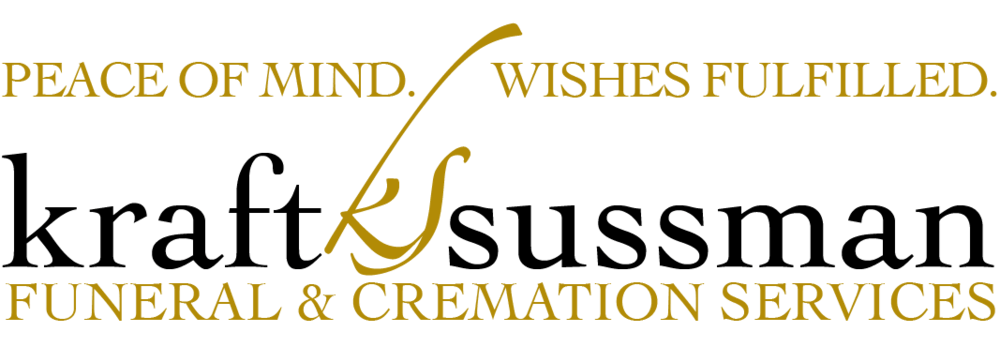BURIAL SERVICES
Traditional burial services vary greatly by religion and culture. Kraft-Sussman Funeral Services is sensitive to the cultural and religious needs of various groups in Southern Nevada. We can assist with arrangements to ensure that your wishes and traditions are incorporated into your service.
Kraft-Sussman works with all local cemeteries and can also coordinate burials at cemeteries worldwide. Prior to the burial, families may choose from a number of services, including a funeral, visitation or graveside service.
Burial FAQ
What types of services can be done prior to a burial?
Depending on religious and cultural backgrounds, a number of different services may be held prior to a burial. Most often, a funeral service (a service with the deceased present in a casket) is held. This may be done in our chapel, a religious venue, or graveside. In addition, some cultures incorporate a viewing or visitation prior to the funeral.
Why is having a place to visit so important?
To remember and to be remembered are natural human needs. A permanent memorial in a cemetery provides a focal point for remembrance and memorializing the deceased. Throughout human history, memorialization of the dead has been a key component of almost every culture. Psychologists say that remembrance practices, from the funeral or memorial service to permanent memorialization, serve an important emotional function for survivors by helping them bring closure and allowing the healing process to begin. Providing a permanent resting place for the deceased is a dignified treatment for a loved one’s mortal remains, which fulfills the natural human desire for memorialization.
How soon after or how long after a death must an individual be buried?
There is no law that states a specific time from for burial. Considerations that will affect timeline include the need to secure all permits and authorizations, notification of family and friends, preparation of cemetery site and religious considerations. Public heath laws may have limitations on the maximum length of time allowed to pass prior to final disposition.
Does a body have to be embalmed before it is buried?
No. Embalming is a choice which depends on factors like if there is to be an open casket viewing of the body or if there is to be an extended time between death and internment. Public health laws may require embalming if the body is going to be transported by air.
What options are available besides ground burial?
Besides ground burial, some cemeteries offer interment in lawn crypts or entombment in mausoleums. In addition, most cemeteries provide choices for those who have selected cremation. These often include placement of cremated remains in a niche of a columbarium or interment in an urn space.
What charges should I expect at a cemetery?
When purchasing a cemetery space, you should consider all of the charges you will incur related to that space. These charges include the cost for the plot, the opening and closing of the grave, a grave vault or liner which goes over the casket, and a headstone. The cemeteries in Southern Nevada are considered endowment care cemeteries, when you purchase the plot and endowment care, there are no yearly upkeep charges.
Cemetery Types
Monumental cemetery: A monumental cemetery is the traditional style of cemetery where headstones or other monuments made of marble or granite rise vertically above the ground. There are countless different types of designs for headstones, ranging from very simple to large and complex.
Lawn cemetery: A lawn cemetery is where each grave is marked with a small commemorative plaque that is placed horizontally at the head of the grave at ground-level. Families can still be involved in the design and the information contained on the plaque, however in most cases the plaques are a standard design.
Mausoleum: A mausoleum is an external free-standing building constructed as a monument enclosing the interment space or burial chamber of a deceased person or people. A mausoleum may be considered a type of tomb or the tomb may be considered to be within the mausoleum. The most famous mausoleum is the Taj Mahal in India.
Columbarium: Columbarium walls are generally reserved for cremated remains. While cremated remains can be kept at home by families or scattered somewhere significant to the deceased, a columbarium provides friends and family a place to come to mourn and visit. Columbarium walls do not take up a lot of space and it is a cheaper alternative to a burial plot.
Natural cemeteries: Natural cemeteries, also known as eco-cemeteries or green cemeteries is a new style of cemetery set aside for natural burials. Natural burials are motivated by the desire to be environmentally conscious. Although natural burials can be performed at any type of cemetery, they are usually done in a natural woodland area. Conventional markings such as headstones are generally replaced with a tree or a bush or a placement of a natural rock. While there are no natural cemeteries in Southern Nevada, as a Green Certified Funeral Home, Kraft-Sussman can assist with the most natural burial possible.
